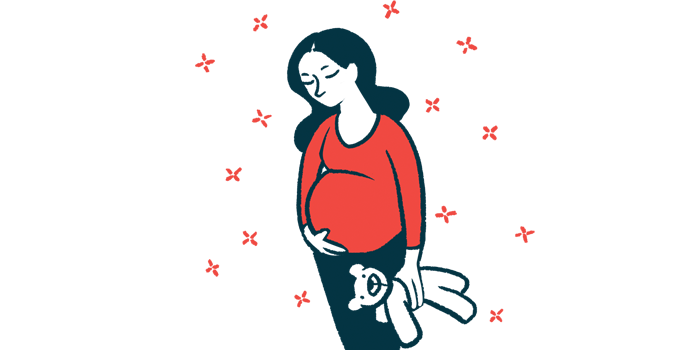Soliris treats pregnancy-related aHUS in woman with CFH mutation
Mutations in genes that regulate complement system common in P-aHUS cases
Written by |

A 38-year-old woman who developed pregnancy-associated atypical hemolytic uremic syndrome (P-aHUS) after giving birth via cesarean section successfully recovered following treatment with Soliris (eculizumab), a case report from China shows.
Genetic testing revealed the presence of a mutation in the CFH gene, which likely contributed to her condition.
“We underscore the significance of genetic testing for accurate diagnosis and personalized treatment, offering new insights and evidence for the future clinical management and research of similar cases,” the study’s researchers wrote. The study, “CFH nonsense mutation-mediated pregnancy-associated atypical hemolytic uremic syndrome: Case report,” was published in Molecular Immunology.
In aHUS, abnormal activity in part of the immune system called the complement cascade causes blood clots to form in small vessels. This can lead to symptoms that include low red blood cell counts driven by red blood cell destruction, low levels of platelets that normally help with clotting, and acute kidney failure. Pregnancy can act as a trigger for aHUS, though there’s often an underlying genetic predisposition.
“In most cases of P-aHUS, patients exhibit mutations in genes that regulate the complement system,” the researchers wrote.
Appropriate treatment options aren’t always clear during and after pregnancy, when symptoms may become apparent, however.
Confirming an aHUS diagnosis
The woman, who’d been pregnant three times already and had given birth once, 13 years earlier, exhibited all three typical symptoms of aHUS, with blood tests showing low platelet counts, low hemoglobin levels, and high levels of several markers of kidney dysfunction. Hemoglobin is the oxygen-carrying protein inside red blood cells. When red blood cell counts fall, so do hemoglobin levels.
For P-aHUS, “other similar diseases must be ruled out before a definitive diagnosis can be confirmed,” the researchers wrote.
After a diagnosis of P-aHUS was confirmed, the woman’s clinicians began administering the corticosteroid methylprednisolone to treat her symptoms. She also started taking antibiotics to reduce a risk of infection.
Treatment with Soliris, an approved aHUS therapy that blocks complement activation, was also initiated. Two days after receiving her first dose, the woman underwent a round of plasma exchange therapy, a type of treatment where plasma, the noncellular component of blood, is removed and replaced.
The woman subsequently received four additional rounds Soliris, and her platelet levels, kidney function markers, and other biochemical tests improved.
“The clinical results indicate that [Soliris] represents a viable treatment strategy with excellent safety for patients with P-aHUS,” the researchers wrote.
Genetic testing revealed a mutation in the CFH gene, which provides instructions for making a protein that normally regulates complement activity. This mutation “result[s] in a [shorter] CFH protein that lacks the complete structure and functionality of the normal CFH protein,” which leads to complement overactivation.
“For women with a family history of aHUS or those carrying related pathogenic [disease-causing] genes, it is crucial to conduct medical monitoring during pregnancy and to adopt the advice of professional physicians to minimize the potential risk of the disease,” the researchers wrote.






